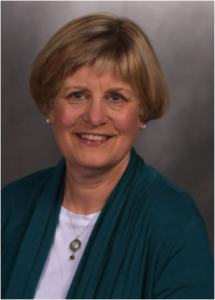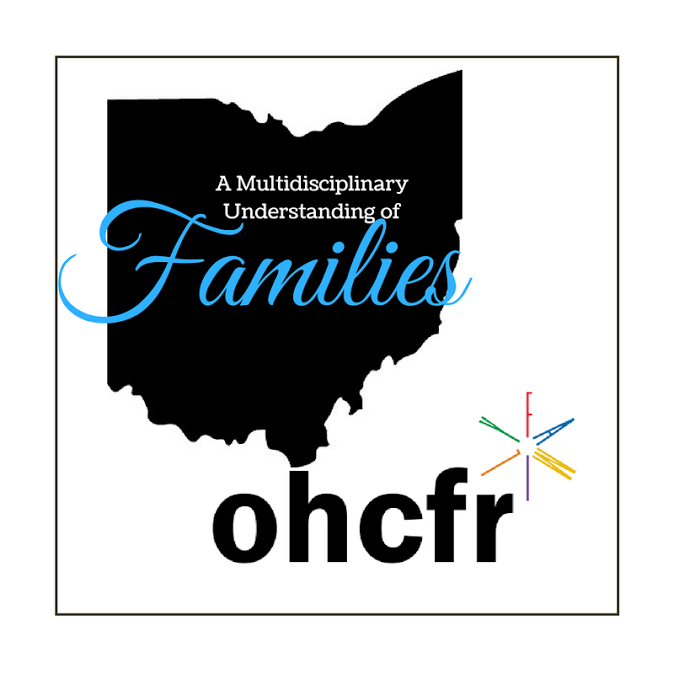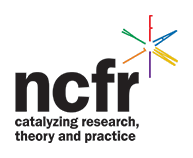
OHCFR is pleased to highlight Rhonda A. Richardson, Ph.D, CFLE in this edition of Career Spotlight! Dr. Richardson is Professor of Human Development and Family Studies at Kent State University, and is retiring this year after more than three decades of faculty service at Kent State.
Dr. Richardson has written a beautiful account of her work as a teacher and mentor, researcher, and family scientist in whole. Read on to learn about her great accomplishments and the legacy she will leave at Kent and beyond (and we should note, she’s made her impression on the OHCFR board as well, not the least of which by supervising the Master’s Theses of OHCFR President Carmen Irving and recently-defended Student Member Amy Kelly).
On being a professor:
“I am Professor of Human Development and Family Studies at Kent State University. I came to Kent State in 1984 fresh out of my Ph.D. program. I chose Kent State because I was looking for an institution that prioritized teaching but also valued research. I have not been disappointed. I primarily teach undergraduate students, but also graduate students enrolled in our Masters degree program. I also direct Masters theses (26 total throughout my career) and projects (16 total) and serve on dissertation committees (30 total) for doctoral students from a variety of departments such as Psychological Sciences, Sociology, Communication, and Counseling. Over my career I have taught 15 different courses; the one course that I have taught at least once a year for 34 years is Parent-Child Relationships. Currently, my teaching and research center on my primary interest in adolescent development and parent-child relationships. Throughout my career I have had the opportunity to contribute to curriculum development and to conceptualize, develop and teach new courses on Early Adolescence, Positive Youth Development, and Family Theories and Processes.
I have been a member of NCFR since 1980 and OHCFR since 1984. I have been a Certified Family Life Educator since 2001 and have used that credential to engage my students in a parenting education initiative providing parenting information workshop sessions at various venues throughout Portage County. I have fond memories of serving on the Board of the Ohio Council on Family Relations from 1992-1996 and presenting numerous papers at the annual meetings from 1985 through the mid-1990s. I am pleased that OHCFR has been reinvigorated over the past decade or so and I admire the energy and innovative initiatives of the current Board members.”
On finding her home in family science:
“I came of age as a ‘child of divorce’ and a ‘latchkey kid’ during the early 1970s and I can still recall feeling stigmatized by teachers, adult neighbors, and parents of my friends. I think that personal experience was foundational to my interest in studying adolescent development within the context of the family. As an undergraduate psychology major in the 1970s, there were two classes that were particularly formative for me. One was developmental psychology, in which I was captivated by the newly emerging notion of lifespan development. The other was community psychology, where I learned about prevention and education as one of the core service components mandated by the Community Mental Health Act of 1963. During my first year of graduate school I read Bronfenbrenner’s newly published book on The Ecology of Human Development, and I completed my graduate education just as Stinnett and DeFrain’s writing about family strengths emerged. I also had the opportunity to learn from Richard Lerner as he articulated the idea of developmental contextualism, and I was a research assistant on Anne Petersen’s groundbreaking longitudinal study of early adolescence. These and other academic experiences set the trajectory for my professional life. Throughout my career, my teaching, research, and service have converged around a central focus on building positive, growth-enhancing connections between adolescents and their families, schools and communities.
There have been so many gratifying moments over my career that it is hard to identify just one or two. In teaching, my best experiences have been when I see students express enthusiasm for what they are learning, and when I hear about alumni who are having a positive impact on children, youth, and families. I hope that in some small way I have contributed to their ability to make a difference. In research, I have always loved discovering new knowledge that can be translated into recommendations and materials that will contribute to strengthening families, schools, and community settings for the direct benefit of children and adolescents.
HDFS has been a wonderful professional ‘home’ for me. Over the years I have seen it develop from a new field of study to a well-established and recognized discipline distinct from its origins in home economics and psychology. Bronfenbrenner’s ecological systems theory has grown from a novel, fledgling idea to a central and widely adopted framework for studying and teaching about human development within the context of the family. The strengths-based and prevention-focused perspective of positive youth development is increasing in popularity and beginning to shape the approaches that schools and community agencies use to support children and youth. Family studies has evolved into family science and is beginning to receive the recognition it deserves as a discipline that can inform and partner with related fields of research and practice. I believe the future is bright for family science and for children, adolescents and families who will be the beneficiaries of the good work of researchers and practitioners in the field.”
On research:
My research has always centered around an interest in adolescent development, with a focus on understanding and strengthening the contexts that support positive development. In addition, throughout my career my research has been intertwined with my teaching, as I have both incorporated my research into course content and assignments as well as derived impetus for research from my classroom teaching.
My early work focused on adolescent mothers, examining social support networks in relation to parenting stress and concluding that both parents and peers can play an important role in the lives of young mothers. That work led me to participation in a Character and Competence Research Program at Radcliffe College in the early 1990s where I examined predictors of competence in a sample of urban African-American adolescent mothers and concluded that the family context was a predictor of the degree to which young mothers were thriving, striving, or surviving. I became curious and concerned about variations in parents’ capacities for maintaining supportive connections with their children as they transition into adolescence.
Shortly after that time I was asked by a colleague in Middle Childhood Education to develop a graduate course on Early Adolescence in order to better equip middle school teachers and administrators to provide a developmentally responsive learning environment. While teaching this new course I was inspired by conversations with middle school teachers to listen to the voices of middle schoolers about their relationships with their parents. This resulted in a study of what questions young adolescents most want to ask their parents. The findings were the basis for a book I co-authored with a former graduate student; titled What Kids REALLY Want to Ask, the book is a guide for using movies to launch parent-child conversations about topics of interest to young adolescents. During the time I was immersed in studying and teaching about middle schoolers, I began reading Richard Lerner’s new scholarly work on the concept of positive youth development. The view of adolescents as resources to be developed rather than problems to be managed strongly resonated with me. I developed a new course on Positive Youth Development and around that same time launched a new research project centered around PYD and family systems. Since 2013 I have been engaged in this research that uses a positive youth development approach to examine resilience and family systems of bereaved children and adolescents longitudinally and to evaluate the impact of bereavement camps for these youth. The project has been funded by the New York Life Foundation and conducted in partnership with the Kent State Research and Evaluation Bureau, the Moyer Foundation, Camp Erin, and Comfort Zone Camp. Over 2,000 Camp Erin and Comfort Zone Camp campers, their families, and adult camp alumni who attended Camp Erin and Comfort Zone Camp bereavement camps as children have participated in the study. The findings are being used to recommend best practices for strengthening bereavement camps as settings that promote strength, resiliency and growth in bereaved children and to provide evidence of the importance of family processes for supporting positive outcomes in children and adolescents.”
We’re sure Dr. Richardson will find plenty of things to spend her time on, as she says she enjoys a variety of activities including “reading historical and literary fiction, being physically active (running, bicycling, hiking, tennis, and weight training), practicing yoga, trying out new plant-based (vegan) recipes, playing fiddle in a Celtic band, playing board games and attending concerts with my husband and friends”. She also noted that she has “two wonderful adult daughters and [is] looking forward to gaining a son-in-law and two ‘step’ grandsons within the next year.” Thank you for all you’ve done for OHCFR and Family Science, Dr. Richardson! We wish you all the best in this next stage of your life!

